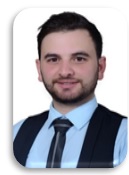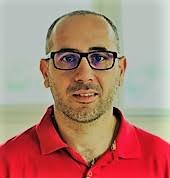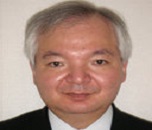Session & Tracks
Track 1: Neuroscience and Neurology
Biology's fast-growing discipline of neuroscience is devoted to studying the composition and operation of the nerve fibres and cells that make up the nervous system Neuroscientists conduct experiments to understand the function and structure of the nervous system, especially about behaviour and learning. They specialise in molecular, biochemistry, physiology, and anatomy of the neurological system.
Track 2: Neurosurgery
The surgical elements of treating neurological diseases will be examined by participants in this track, along with talks on the most recent developments in surgical procedures and strategies for challenging neurosurgical situations.
Track 3: Brain Disorders
Brain disorders encompass a wide range of conditions that affect the structure or function of the brain. These disorders can arise from various factors including genetics, injury, infection, or environmental influences. Some common brain disorders include:
Track 4: Stroke and Trauma
A stroke happens when there is a major decrease in or disruption of blood flow to a particular area of the brain. It is also known as a brain stroke or cerebrovascular accident. A stroke occurs when there is a substantial reduction or cessation of blood flow to a portion of the brain, depriving the brain tissue of vital nutrients and oxygen.
Track 5: Paediatric Neurology
The evaluation and management of neurological conditions in children from infancy to puberty is the main focus of paediatric neurology. This speciality cares for young patients with disorders of the brain, spinal cord, nerves, and muscles. Evaluation of developmental delays, seizures, neuromuscular abnormalities, and other childhood-specific neurological problems is a speciality of paediatric neurologists.
Track 6: Psychology
The medical profession of psychology is devoted to diagnosing and treating mental health issues. They diagnose illnesses like schizophrenia, depression, and anxiety and provide a variety of therapies including medication, therapy, and lifestyle changes. Psychiatry seeks to improve functioning, lessen symptoms, and improve the quality of life for those with mental health issues.
Track 7: Neurogenesis and Cell Biology
The mechanism by which new neurons (nerve cells) are produced in the brain is known as neurogenesis. Although it mostly happens during embryonic development, it also persists throughout life in several parts of the brain, most notably the olfactory bulb and the hippocampal regions. Adult neurogenesis is thought to be continuing and contributes to memory, learning, and mood regulation.
Track 8: Dementia
Dementia is a broad range of cognitive deficits. It describes a reduction in memory. After a stroke, vascular dementia is the second most prevalent kind. The brain regions that are affected by dementia can be used to categorize cases; "cortical" dementia mostly affects higher-level abilities like language and reasoning, whereas "subcortical" dementia usually impairs memory and language less severely. Cortical dementia is caused by injury to the brain.
Track 9: Alzheimer's Disease
Alzheimer’s Disease is a prevalent neurodegenerative condition characterized by progressive cognitive decline, notably affecting memory and daily functioning. It is marked by the accumulation of abnormal proteins in the brain, leading to nerve cell damage and loss. Onset usually occurs in older adults, impacting millions worldwide. Alzheimer's poses significant challenges for patients, caregivers, and healthcare systems.
Track 10: Trauma and PTSD
Trauma can have profound and long-lasting effects on mental health. This session will explore the relationship between trauma and various mental health disorders, with a specific focus on Post-Traumatic Stress Disorder (PTSD). Experts will present trauma-informed care approaches, evidence-based treatments, and new developments in trauma-focused therapies.
Track 11: Women & Mental Health
Our emotions, thoughts, and behaviours are shaped by optimal mental health, which gives us vitality and social fulfilment. Mental illnesses, which affect feelings, thoughts, and behaviour, require medical attention, particularly if they have a history of abuse at their core. Maintaining mental health supports physical well-being in general and cultivates the capacity to enjoy life and effectively navigate difficulties. A happy and balanced existence requires a strong mental health foundation.
Track 12: Digital Psychiatry
Digital psychiatry refers to the integration of digital technologies into the field of psychiatry to improve mental health care delivery, assessment, and treatment. It encompasses various tools and platforms, including mobile applications, wearable devices, telepsychiatry, virtual reality, artificial intelligence, and online therapy platforms.
Track 13: Epigenetics
The study of changes in cellular phenotype or gene expression that do not relate to modifications in the DNA sequence itself is known as epigenetics. Rather, genes' on/off states are controlled by epigenetic pathways, which affect the proteins that the cell makes. Histone modifications, non-coding RNA activity, and DNA methylation are some of these pathways.
Track 14: Ethno-Psychiatry
A subspecialty of psychiatry called ethno-psychiatry studies the relationship that exists between mental health, culture, and ethnicity. It places a strong emphasis on comprehending how social settings, cultural practices, values, and beliefs affect how mental illnesses manifest, are experienced and are treated.
Track 15: Forensic Psychiatry
A sub-branch in psychiatry that primarily deals with criminology is forensic psychiatry. It serves as the link between the legal system and psychiatry. In the criminal justice system, forensic psychiatrists primarily concentrate on the science of diagnosing and treating mental health issues. Their primary responsibilities include diagnosing patients, writing prescriptions, and doing client assessments.
Track 16: Child Adolescent Psychiatry
Adolescents and teenage Therapists who specialise in the investigation and treatment of problems with reasoning, emotion, or potentially harmful behaviours that impact children, adolescents, and their families are known as psychiatrists. Psychotherapy or possibly medication is the main treatment used by child and adolescent experts for mental health concerns in the paediatric population.
Track 17: Suicide Prevention
The goal of suicide prevention is to lessen the likelihood of suicidal thoughts and actions while also fostering mental health. It includes a range of tactics used at the individual, group, and societal levels to recognise and assist those who are at risk as well as deal with the root causes of suicidal ideas and actions.
Track 18: Geriatric Depressions
Depressive illnesses that affect older persons, usually those 65 years of age and above, are referred to as geriatric depression, often called late-life depression. Although depression can strike anyone at any age, there are particular obstacles that older adults may encounter that may lead to the onset or worsening of depressive symptoms.
Visa Trip Advisor
Are you arranging a trip to London, United Kingdom? Come to our gathering!
with your VISA?
We offer participants the following VISA support documents to help them with the VISA application process:
1. Official letter of invitation.
2. Official Acceptance Abstract Letter
3. Payment Acceptance
Please be aware that the official letter of invitation (the visa letter) will not be provided until the conference has been successfully registered and paid for. Only those who have been accepted to the conference are eligible to receive visa letters.
To arrange for a visa letter, please send an email to contact@globalconferencemeet.com the Programme Manager.
For Visa Letters, kindly provide us with the following information:
-
The name on your passport, as it appears
-
Copy of Passport Scan (Passport Number and Birthdate)
-
Abstract Acceptance Letter Modes of Payment
Payment methods:
1. Payment Gateway: RAZORPAY
2. Bank-to-bank transfer
Having difficulties registering?
Please contact the Program Manager at contact@globalconferencemeet.com. The NEUROSUMMIT 2024 staff will send you an INVOICE for the desired payment, allowing you to complete the Bank-to-Bank transfer.








